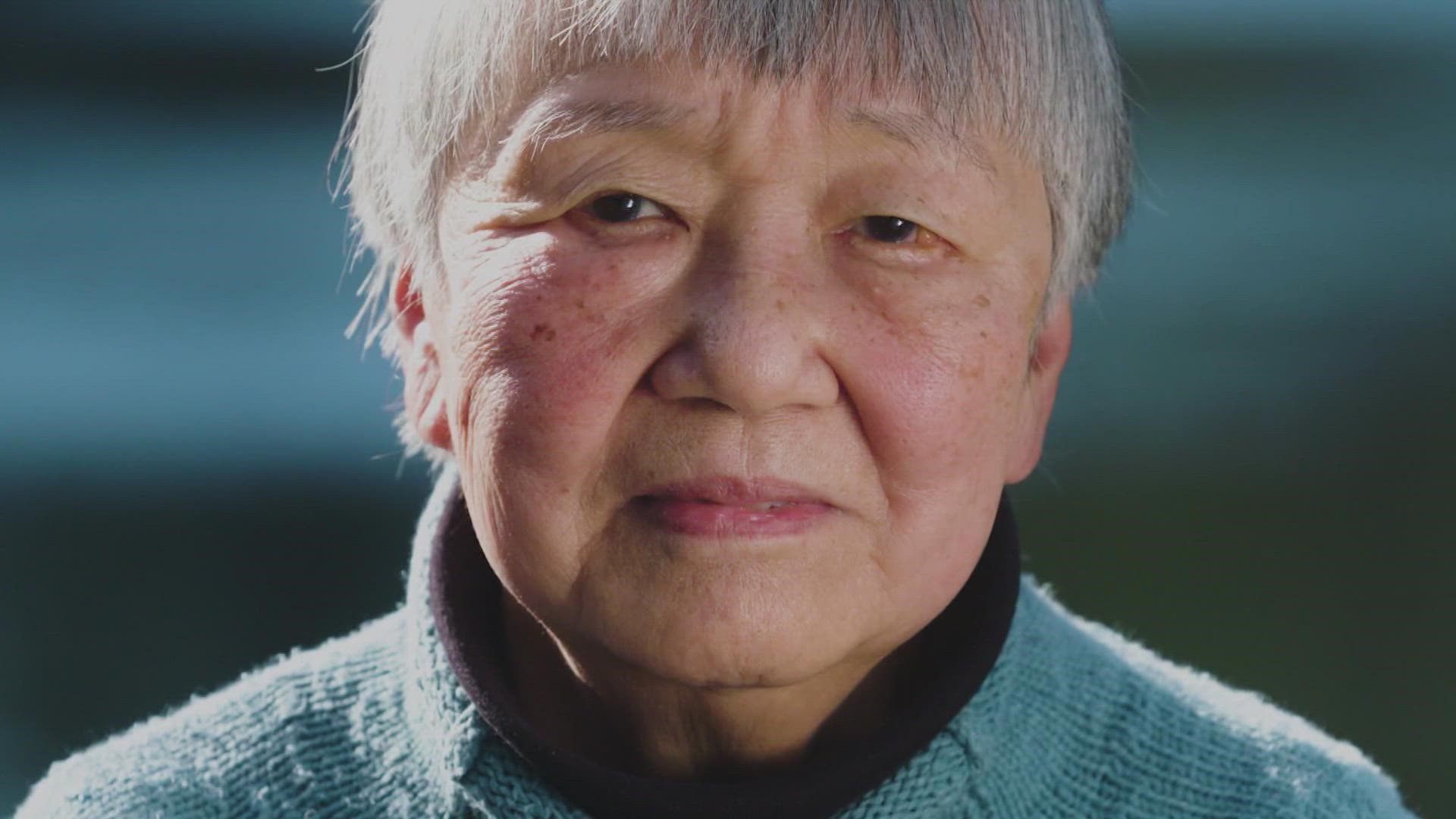BAINBRIDGE ISLAND, Wash. — This week marks the 80th anniversary of an event that still affects thousands of Washington state families: the signing of executive order 9066.
“It says, ‘All Japanese persons, both alien and non-alien will be evacuated from this area’,” said Lilly Kitamoto Kodama, 86, as she reads a historical sign at the Bainbridge Island Japanese American Exclusion Memorial. “They didn't dare say citizens, because they knew at the time that what they were doing was wrong.”
Kitamoto Kodama was 7 years old when her family and roughly 260 other Japanese Americans and immigrants were exiled from the community and forced into internment camps.
After Japanese forces bombed Pearl Harbor in 1941, President Franklin Roosevelt signed executive order 9066, authorizing the forcible removal and imprisonment of more than 120,000 Japanese Americans and immigrants.
“We were the first to be taken away,” said Kitamoto Kodama. The first people to be removed under the order came from Bainbridge Island. "I like to tell people, there were advantages to being the first because we got a lot of press coverage. So there's a lot of photographs of that event on Bainbridge Island.”
They were given six days' notice to pack up a few of their belongings.
Kitamoto Kodama and her family would be imprisoned for the duration of the war. On March 30, 1942, they were put on a ferry bound for Seattle. After that, a train took them to the Manzanar War Relocation Center in California.
“I saw all my aunties and my cousins, and I saw real soldiers with, with guns,” she said.
Moved into barracks surrounded by barbed wire and armed military, Kitamoto Kodama remembers how the camp cut her childhood short in many ways.
“I happen to find a creek that was inside the barbed wire, so I took off my shoes. I looked up and here was the guard tower was right there and there was a soldier and he had a gun and he was looking down and pointing it at me and that scared me,” said Kitamoto Kodama.
That may have been 80 years ago but Asian Americans say they often still feel like outsiders – unfairly blamed and punished for events of the day.
They've been persecuted for the pandemic and the spread of COVID-19.
“There is nothing new about this, not only in recent years but historically, this has been something that's happened to people of Asian descent, over and over and over again,” said Helen Zia, author and activist.
That blame often comes with violence.
According to data compiled by California State University, since 2020 reports of anti-Asian hate crimes jumped 342%.
In King County, the number of race-related hate crime cases nearly doubled at the start of the pandemic. It went up from 22 in 2019, to 40 cases just a year later. Fifteen of those local cases involved Asian Americans.
“We're talking about a whole community that just really doesn't know anymore, like what is safe, not just for them, but for their children and their families. And every new incident just leads to a compounding of that stress, you know, a retriggering of these moments. We are talking about severe trauma,” said Zia.
It’s trauma Kitamoto Kodama still feels today about a history she fears may be forgotten.
“There are still people who don't know that this happened,” she said.
By 1945 most Japanese Americans were allowed to return to their homes only to find more hate waiting for them.
“As we were walking on the sidewalk, this caucasian man came up behind us and said, 'why don't you go back where you came from blank blank japs' and I turn around and say ''’I’m not a jap!,” said Kitamoto Kodama. “After that, I, I really bent over backward to prove I'm an American.”
While distance and time can fade memory, Kitamoto Kodama warns those who fail to learn from history are doomed to repeat it. She believes similar events have happened since the Japanese Internment, and they could happen again.
“The government is made up of people and people can make mistakes. But, I like to believe that most people are still basically good. And so that gives me hope,” she said.
It took more than 40 years for the U.S. government to issue a formal apology to the remaining 80,000 survivors, along with a check for $20,000. It came too late for the many survivors who had since passed away.

